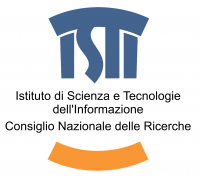Gabriele Gattiglia, Francesca Anichini, Maria Letizia Gualandi, Matteo Lorenzini
This workshop is promoted by the MAPPA Lab of the University of Pisa; the Lab manages the archaeological open data repository MOD and organises the Open School of Archaeological Data, a free school to foster open data literacy in archaeology.
In this workshop we want to encourage a civic hacking approach to archaeology, an open data approach that we define as ha(r)ckeology. Hacking is a tricky term which it’s difficult to find a single widely accepted definition for. To most of the population, hacking is still associated solely with the acts of breaking into security systems. To those near the technology world, hacking means attempting to solve problems more quickly or creatively than before, and it’s about using new ideas and approaches to improve the status quo. In the context of ha(r)ckeology, we’re clearly more interested in the problem-solving definition of hacking. Using Mark Zuckerberg’s definition: hacking just means building something quickly or testing the boundaries of what can be done. A definition with no explicit mention of technology: hacking is conceived more as a process than as a specific toolset. Therefore, ha(r)ckeology is the act, conducted by archaeologists, of quickly improving the processes and systems of archaeology with new tools or approaches, or more simply ha(r)ckeology means archaeologists working together quickly and creatively to improve archaeology. For reaching such a goal, the first step is to educate a new generation of archaeologists, a sharing generation able to work with a trowel, and to share and manipulate data, a generation that is aware that archaeological data must be open because they are public, they are expensive to produce, and they must be reused.
The workshop has a talking and making approach and want to introduce in a practical manner in how to find, to download, to use, to reuse, and to publish data in open formats. We will explain how to transform data from native formats to more useful formats, for example using Tabula for liberating tables locked inside .pdf files, or making web data extraction easily with software like Import.io . After the data mining, we will work with OpenRefine, a powerful tool for working with messy data: is there someone that thinks that archaeological data aren’t messy? We will clean and transform them from one format into another; we will geocode tabular data starting from a simple address and analyse the spatial properties of archaeological data. Using qGIS we’ll explore the spatial properties of archaeological data, and we’ll apply to them statistical, geostatistical and mathematical models. Archaeologists are open data user, but also open data producer. We will work with metadata and licenses: the ethical and legal aspects connected with the opening of the archaeological data are of fundamental importance.
We don’t want to teach, but to share our experience.


